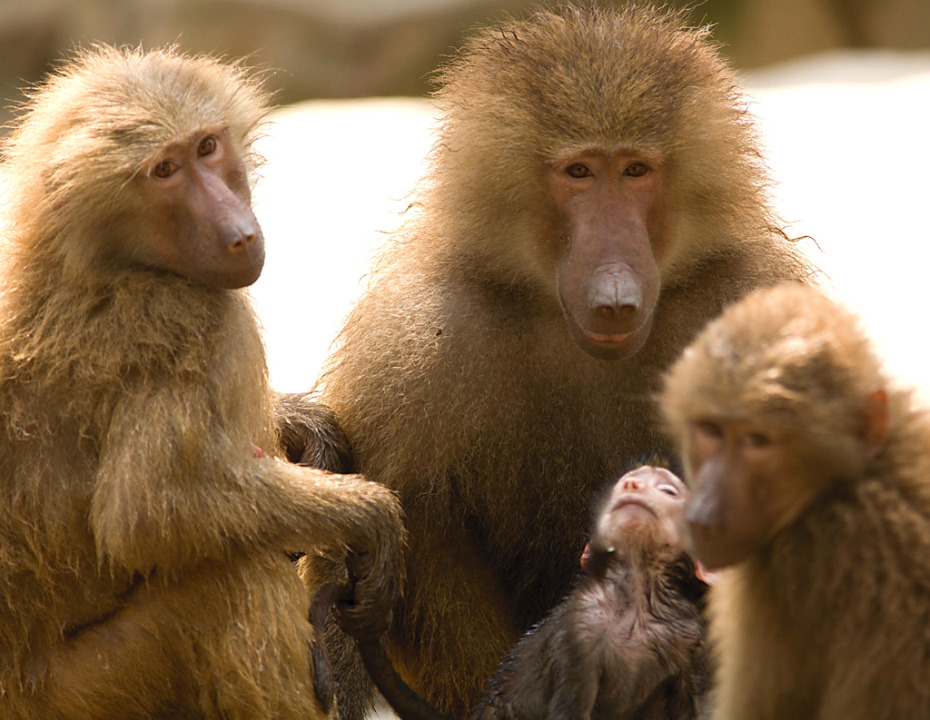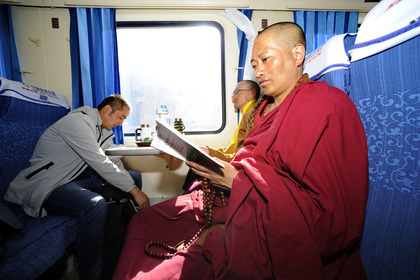Qinghai-Tibet Railway receives high appraisal from Hong Kong journalist
From three years into one day: Princess Cheng Wen “returns to her parents home” becomes convenient.
The theatrical work Princess Chengwen was staged in Lhasa. Not counting cows, sheeps and horses, the actors alone numbered to about 700 people and the spectacle was very large.
Changes in GDP that the train system has brought along
After the Qinghai-Tibet railroad went into service, goods and people can enter into Tibet 365 days a year regardless of any weather conditions that might have hindered transport in the past. The livelihood of Tibetan people as well as their point of views have also changed in obvious ways. In the past 10 years since the train went into operation, Tibet has definitely changed. Its GDP has shifted from 29 billion yuan in 2006 to about 1 trillion in 2015.
The lives of people changed along the way. Before the Qinghai-Tibet railroad opened, the roads into Tibet were not very convenient and the mountain roads were rugged. Furthermore, weather was also not good. For these reasons and more the expression “going into to Tibet is harder than going into the sky” emerged and for related reasons the Qinghai-Tibet railroad also got the nickname “Road to the Sky”. Now the distance between Tibet and other parts of China has been made not so far.
Goods as well as transport of people and perspectives all have a fresh start and all of this has significantly altered the appearance of the land. Along the way I encountered a good number of herdsmen. The first thing that I would like to say is that none of them were impoverished. Other than the fact that there are subsidies provided to them on an annual basis, up until now a great number of herdsmen are still self-sufficient.
So what kinds of changes did Tibetans have?
After the Qinghai-Tibet railroad opened, Tibet peoples’ lives changed and furthermore the changes in their perspectives are also very obvious. Most of the common Tibet people interviewed agreed regarding the validity of the aid provisioned by the central government in Tibet. A Nyingchi girl that road along with me by the name of Ciyangchen said that “the government takes good care of Tibet and that other than the three subsidized items of tuitions, accommodation and meal expenses, medical fees are also being subsidized by the government; and thanks to this it is possible to work hard and achieve overall good living conditions. Furthermore, we can maintain our faith, so what do we have to complain about?” Ciyangchen also said that “The environment is something to protect, Tibetan Buddhism indicates that we coexist with nature, and this core idea is no different than the idea of sustainable development being advocated for now, our traditions have no conflicts with modernization.”
Your Comment
Name E-mailRelated News
-
;
-
-

-
Qinghai-Tibet Plateau now home to tropical baboon
The first Hamadryas baboon born on the Qinghai-Tibet Plateau is thriving in a zoo in Xining, capital of northwest China's Qinghai Province.
-
-
-

-
Travelling on the Qinghai-Tibet railway
According to the China Railway Corp, the Qinghai-Tibet Railway had carried 115 million passengers and moved 448 million tons of goods as of May.
-
-
-

-
Qinghai-Tibet Railway does not affect migratory patterns of Tibeta
After the Qinghai-Tibet Railway went into service, rare animals such as the Tibetan antelope have not been affected in the regard of migration patterns.
-
Based in Lhasa, Tibet Vista is a Tibet travel agency that specialized in Tibet permit, and Tibet tours for both private and group travelers at a local price!
•4 Days Lhasa City Group Tour from USD 460 •8 Days Everest Base Camp Group Tour from USD 850 •15 Days Mt.Kailash Group Tour from USD 1780 •2016 Tibet Train Tours from Beijing, Shanghai, Chengdu, Xining,etc










